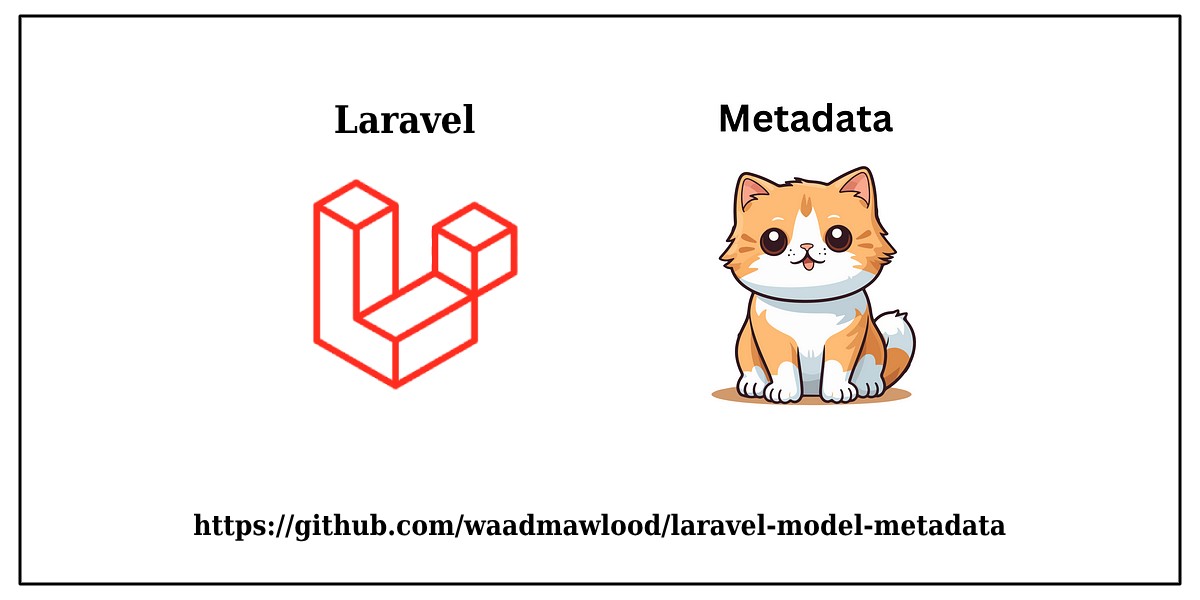waad / laravel-model-metadata
A Laravel package for handling metadata with JSON casting and custom relation names.
Installs: 2 682
Dependents: 0
Suggesters: 0
Security: 0
Stars: 80
Watchers: 3
Forks: 2
Open Issues: 0
pkg:composer/waad/laravel-model-metadata
Requires
- php: ^8.0
- ext-json: *
- laravel/framework: ^9.30.1|^10.0|^11.0|^12.0
Requires (Dev)
- laravel/pint: ^1.0
- orchestra/testbench: ^7.0|^8.0|^9.0|^10.0
- pestphp/pest-plugin-laravel: ^1.4|^2.4|^3.0
README
Laravel Model Metadata
Laravel Model Metadata is a package designed to manage metadata with JSON support for multiple data types. It allows you to easily attach, manage, and query metadata on your Laravel models using the HasManyMetadata or HasOneMetadata traits.
📚 Documentation
For detailed documentation, including usage examples and best practices, please refer to the Documentation.
✨ Requirements
- PHP 8.0 or higher
- Laravel framework 9.30.1 or higher
- JSON extension enabled
💼 Installation
-
Install the package using Composer:
composer require waad/laravel-model-metadata
-
Publish the migration files:
php artisan vendor:publish --tag=metadata-migrations
-
Run the migrations:
php artisan migrate
🎈 Usage
🔥 HasOneMetadata Trait
Add the HasOneMetadata trait to your model to enable a single metadata record:
use Waad\Metadata\Traits\HasOneMetadata; class Company extends Model { use HasOneMetadata; // <--- Add this trait to your model }
Some methods:
// Create metadata with array (only works if no metadata exists) $company->createMetadata(['key' => 'value', 'another_key' => 'another_value']); // Create metadata with collection $company->createMetadata(collect(['key' => 'value'])); // Update existing metadata $company->updateMetadata(['new_key' => 'new_value']); // Delete the metadata $company->deleteMetadata(); // Get metadata as array $metadata = $company->getMetadata(); // Get metadata as collection $metadataCollection = $company->getMetadataCollection();
🔥 HasManyMetadata Trait
Add the HasManyMetadata trait to your model to enable multiple metadata records:
use Waad\Metadata\Traits\HasManyMetadata; class Post extends Model { use HasManyMetadata; // <--- Add this trait to your model // Enabled Append id with content metadata (default) public $metadataNameIdEnabled = true; // Custom Append key of id with metadata (default) public $metadataNameId = 'id'; }
see Configuration Append Id for more details
Some methods:
// Create metadata with array or collection $post->createMetadata(['key1' => 'value1', 'key2' => 'value2']); $post->createMetadata(collect(['key1' => 'value1', 'key2' => 'value2'])); // Update metadata by ID $post->updateMetadata('{metadata_id}', ['new_key' => 'new_value']); // Delete metadata by ID $post->deleteMetadata('{metadata_id}'); // Get all metadata objects $metadata = $post->metadata; // or $metadata = $post->metadata()->get(); // Get metadata by ID $metadata = $post->getMetadataById('metadata_id'); // Get all metadata column pluck as array $allMetadata = $post->getMetadata(); // Get all metadata column pluck as collection $metadataCollection = $post->getMetadataCollection(); // Search in metadata $searchResults = $post->searchMetadata('search_term');
🧪 Testing
To run the tests for development, use the following command:
composer test
👨💻 Contributors
- Waad Mawlood
- Email: waad_mawlood@outlook.com
- Role: Developer
📝 License
This package is open-sourced software licensed under the MIT license.

